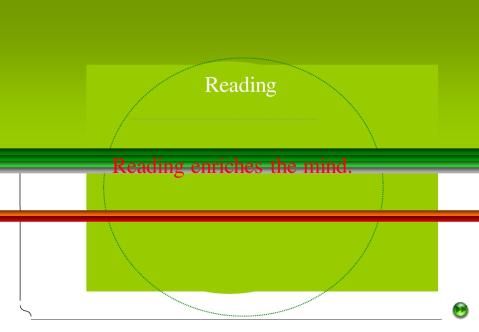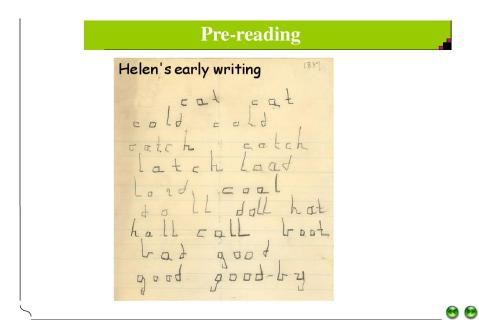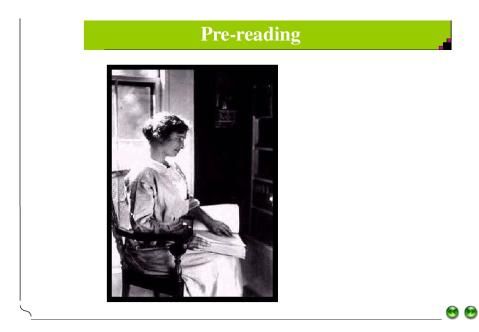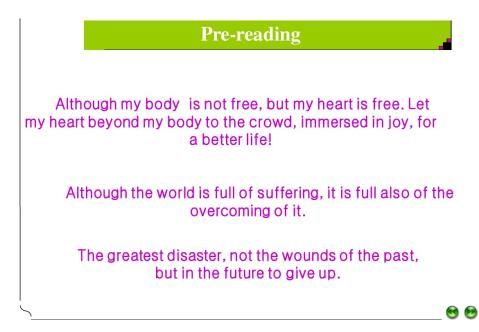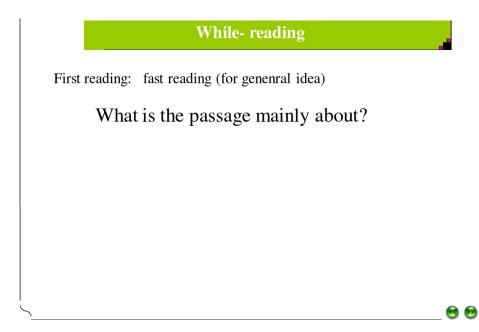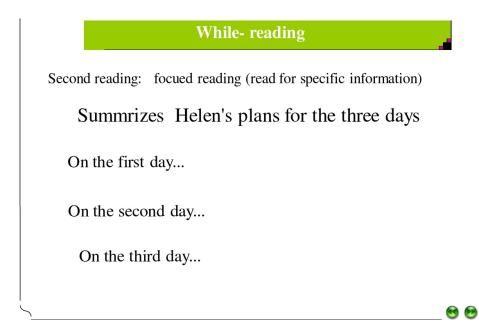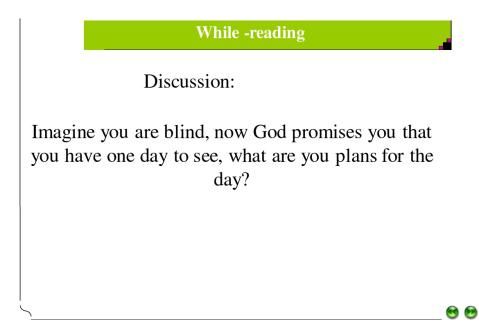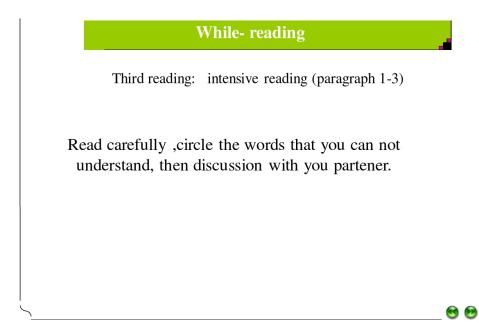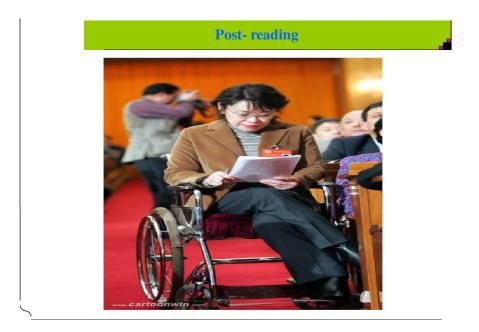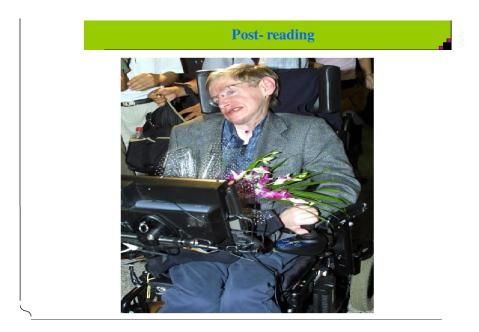Three Days to See
All of us have read thrilling stories in which the hero had only a 1______ and specified time to live. Sometimes it was as long as a year, sometimes as short as 24 2______. But always we were interested in discovering just how the doomed hero chose to spend his last days or his last hours. I speak, of course, of free men who have a choice, not condemned criminals whose sphere of 3_______ is strictly delimited.
Such stories set us thinking, wondering what we should do under 4_______ circumstances. What events, what experiences, what associations should we crowd into those last hours as mortal beings, What 5______ should we find in reviewing the past? What regrets?
Sometimes I have thought it would be an excellent 6______ to live each day as if we should die tomorrow. Such an attitude would emphasize sharply the 7______ of life. We should live each day with gentleness, vigor and a keenness of appreciation which are often lost when time stretches before us in the constant panorama of more days and months and years to come. There are those, of course, who would adopt the Epicurean motto of “Eat, 8______, and be merry”. But most people would be chastened by the certainty of impending death.
In stories the doomed hero is usually saved at the last minute by some 9_______ of fortune, but almost always his sense of values is changed. He becomes more appreciative of the meaning of life and its permanent 10_______ values. It has often been noted that those who live, or have lived, in the shadow of death bring a mellow sweetness to everything they do.
Most of us, however, take life for granted. We know that one day we must die, but usually we picture that day as far in the future. When we are in buoyant health, death is all but unimaginable. We seldom think of it. The days stretch out in an endless vista. So we go about our petty tasks, hardly aware of our listless attitude toward life.
The same lethargy, I am afraid, characterizes the use of all our faculties and senses. Only the deaf appreciate hearing, only the blind realize the manifold blessings that lie in sight. Particularly does this observation apply to those who have lost sight and hearing in adult life. But those who have never suffered impairment of sight or hearing seldom make the fullest use of these blessed faculties. Their eyes and ears take in all sights and sounds hazily, without concentration and with little appreciation. It is the same old story of not being grateful for what we have until we lose it, of not being conscious of health until we are ill. I have often thought it would be a blessing if each human being were stricken blind and deaf for a few days at some time during his early adult life. Darkness would make him more appreciative of sight; silence would teach him the joys of sound.
All of us have read thrilling stories in which the hero had only a limited and specified time to live. Sometimes it was as long as a year, sometimes as short as 24 hours. But always we were interested in discovering just how the doomed hero chose to spend his last days or his last hours. I speak, of course, of free men who have a choice, not condemned criminals whose sphere of activities is strictly delimited.
Such stories set us thinking, wondering what we should do under similar circumstances. What events, what experiences, what associations should we crowd into those last hours as mortal beings, What happiness should we find in reviewing the past? What regrets?
Sometimes I have thought it would be an excellent rule to live each day as if we should die tomorrow. Such an attitude would emphasize sharply the values of life. We should live each day with gentleness, vigor and a keenness of appreciation which are often lost when time stretches before us in the constant panorama of more days and months and years to come. There are those, of course, who would adopt the Epicurean motto of “Eat, drink, and be merry”. But most people would be chastened by the certainty of impending death. In stories the doomed hero is usually saved at the last minute by some stroke of fortune, but almost always his sense of values is changed. He becomes more appreciative of the meaning of life and its permanent spiritual values. It has often been noted that those who live, or have lived, in the shadow of death bring a mellow sweetness to everything they do.
Most of us, however, take life for granted. We know that one day we must die, but usually we picture that day as far in the future. When we are in buoyant health, death is all but unimaginable. We seldom think of it. The days stretch out in an endless vista. So we go about our petty tasks, hardly aware of our listless attitude toward life.
The same lethargy, I am afraid, characterizes the use of all our faculties and senses. Only the deaf appreciate hearing, only the blind realize the manifold blessings that lie in sight. Particularly does this observation apply to those who have lost sight and hearing in adult life. But those who have never suffered impairment of sight or hearing seldom make the fullest use of these blessed faculties. Their eyes and ears take in all sights and sounds hazily, without concentration and with little appreciation. It is the same old story of not being grateful for what we have until we lose it, of not being conscious of health until we are ill.
I have often thought it would be a blessing if each human being were stricken blind and deaf for a few days at some time during his early adult life. Darkness would make him more appreciative of sight; silence would teach him the joys of sound.
第二篇:Three days to see课件
